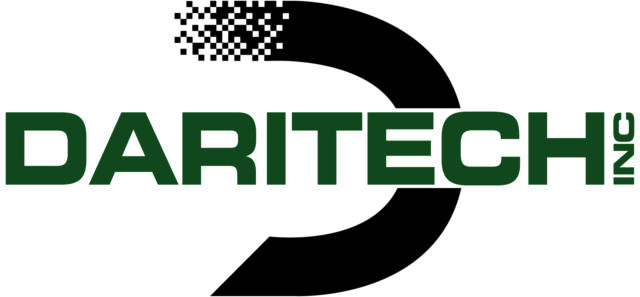Nearly half of all Americans make New Year’s resolutions each year. However, only 8 percent of people who set resolutions succeed in implementing them.
Why do so many of us find ourselves looking back with good intentions but no concrete progress on our goals to show for it?
I found the podcast episode “Resolutions vs Habits: Why ONE is Better than the Other” from The One Thing insightful and immediately applicable. If you have 29 minutes and 38 seconds, listen to the podcast. If you have two minutes, read the bold points below. If you have 10 minutes, read the entire article.
As you read through the article or listen to the podcast, challenge yourself to honestly answer these questions:
What is the one thing that is stopping me from being successful in implementing the changes I seek to make? What’s the one thing that is most relevant to me?
If you haven’t been successful in the past, it’s not your fault. It’s likely you haven’t been taught, you haven’t had the tools or both. You can change that now. You are reading this article, possibly picking up the book, listening to the podcast or going to The One Thing's website for their free tools. One of the things I love about The One Thing is that you have access to a lot of great free tools, coupled with the free podcast – with an investment in time, you can get education, motivation and inspiration to keep you moving forward.
Here are five opportunities The One Thing has identified that if you can get more clarity on, it can help you achieve your goals.
1) You are clear on why the goal you set matters to you (5:00 in podcast)
Why do you want to lose weight?
Why do you want to spend more time with your family?
“Until you have a sense of purpose, a reason why associated with your goals, your possibilities may be limited,” Geoff Woods from The One Thing explained on the podcast.
If there is a group of people who knows hard times, it’s dairy farmers. What has carried you through? How can you apply the same sense of a deep “why” to goals you have today?
2) You recognize the purpose of a goal is to be appropriate in the moment (7:15 in podcast)
If you’re like me, you thought the purpose of a goal is to achieve a result. I want to challenge you to flip your thinking. The purpose of a goal is to be appropriate in the moment.
What if you thought about your goal not as the ultimate result you want to achieve, but as the immediate action you need to be appropriate in the moment?
Based on where you want to be, the results you want, it determines the person you become right now. What do you need to do right now to be appropriate in the moment?
When was the last time you wrote down and tracked your goals for one month, six months or even a year? Download The One Thing’s 411 (four weeks, one month, one year = 411) free worksheet and print out four copies of it. Try it for a quarter and see what happens.
3) You prioritize your time with “time blocking” the most important activities (11:30 in podcast)
Prioritizing time and giving it a fancy name of “time blocking” might seem like a nice thing for someone with a typical 9-to-5 job. Dairy farming is 24/7/365. You already get up at 4 a.m. and work well past 5 p.m. You work weekends and holidays, or are on-call, at the very least. Where is there any more time?
It is indeed possible, once you truly recognize your priorities, to schedule time in your day for what matters most to you. Perhaps it’s dedicating a half-hour each morning to planning and strategizing for your business, or blocking out the evening hours to spend time with family. Things will come up, and it may not happen every day, but by dedicating time to your most important activities and writing it on a calendar or putting reminders into your phone, it is much more likely to happen.
If you take a hard look at how you spend your time on a daily basis – what are you spending time on that is taking precious time and energy from you that is truly not important? Perhaps it’s mindlessly scrolling through social media, or giving your energy toward talking negatively or gossiping about other people. How has that investment of your time paid off in the past? Odds are, not very well.
The clock isn’t designed to track your priorities it’s eaten away by all the little things in your world. Before you know it, another sun up and sun down has come and gone, another season has changed and another year has passed you by.
Does your time reflect your priorities?
4) You make those activities a habit (16:05 in podcast)
“People do not decide their futures. They decide their habits, and their habits decide their futures.” —Frederick Matthias Alexander
When you have questions coming at you left and right from this direction and that – it’s exhausting. For the new habits you are forming, you have to make the decision to stay on track with the goal every day. You have to recommit. The recommitment drains your energy. Even if it’s just a small commitment, it still takes energy.
In my first article, I mentioned that my first 66-Day Challenge was developing the habit of flossing. I’m well over the 66-day mark and am happy to report that I don’t even think about flossing anymore. It’s routine. It’s boring. It’s a part of my everyday life, just like brushing my teeth has been for many years. I spend zero time or energy thinking about flossing; I just do it. This is by no means a life-changing habit, but I’ve achieved it. I am using this positive momentum to stack on my next habit. I am using this momentum to build success with my next 66-Day Challenge.
“Stacking habits over time,” as Woods said in the podcast, “is when things get really exciting.”
Start a 66-Day Challenge of your own. Download the calendar for free here – make it a habit that sticks, and share how you’re doing with us in our Facebook group: “ONE THING for dairy farmers & dairy industry.” Not on Facebook? Drop me an email or give me a call.
5) You establish a routine for revisiting your goals so the goal becomes woven into your life (19:50 in the podcast)
Establish a routine to sit down weekly with your goals, to look at the activities you said were most important to reach those goals and check in. How are you doing? Are you on track? Do you need to adjust the goal?
Again, this might sound like a luxury – to take time once a week to revisit your goals – but if you only look at your goals once or twice a year, why would anyone be surprised if you suddenly start to reach them? If you don’t establish a routine to check in with yourself, a goal is an aspiration.
It’s even better and more effective if you can include the people who are most important in your life.
- Do you sit down weekly with your husband or wife and revisit what you said really mattered to you and your family?
- Do you have a weekly family meeting?
- Do you know what is most important to your husband or wife?
- No one succeeds alone.
Have the people in your environment support and be a part of your goals.
Dairy farmers are traditionally very independent people – go at it alone, push harder, work longer, sweat more, do more. Alone.
If that’s you, what if you tried it a different way? If you’re great at getting others around you involved, do you think they would like this “one thing” idea? Do some of the questions seem relevant to those in your life?
“Potential is limited when you are not aligned with the people who matter to you,” Woods said in the podcast, and I know that has been true for me.
How do you get started?
- Start your first 66-Day Challenge.
- Talk to one friend about what you’ve read.
- Put your phone down during meals with your family.
- Listen to the podcast.
- Get really clear about the why behind an important goal.
- “Time block” one thing each day (even if it’s flossing and will take two minutes).
If you can only implement one thing, what is the one thing you can do? ![]()

-
Amy Throndsen
- Chief Operating Officer
- Advanced Comfort Technology Inc.
- Email Amy Throndsen





